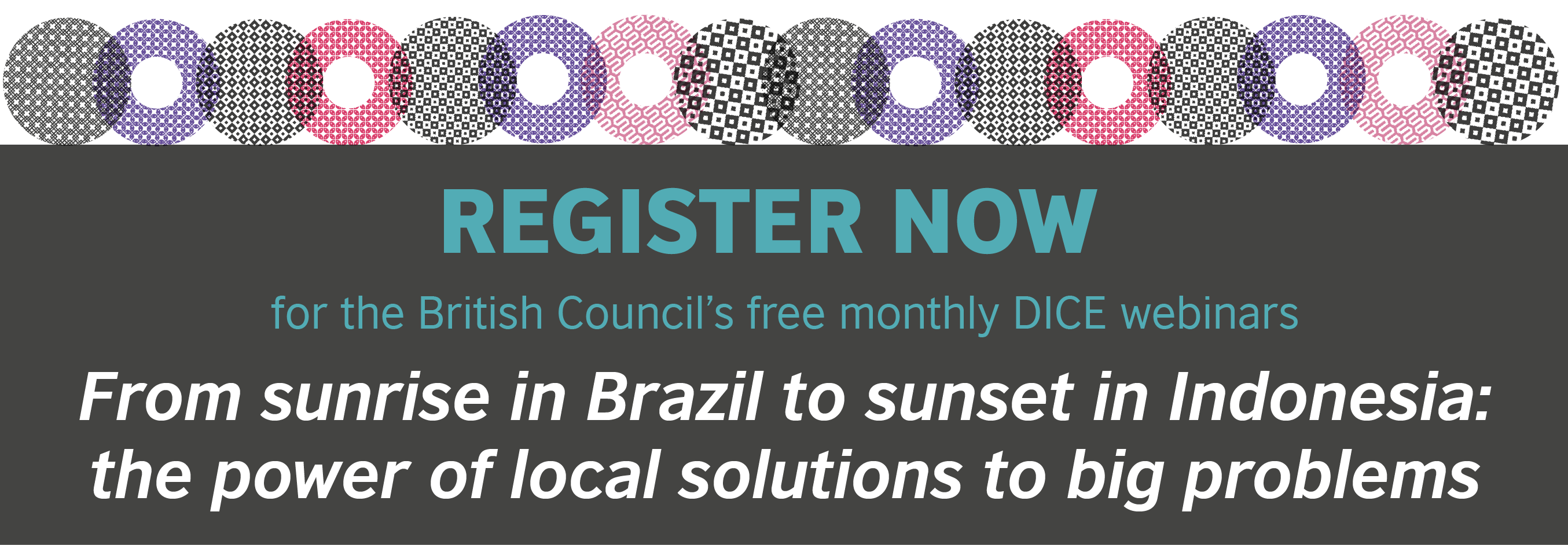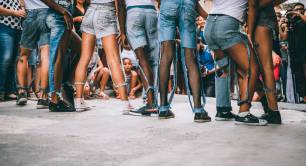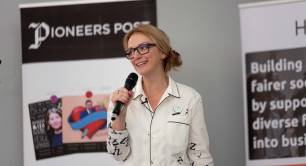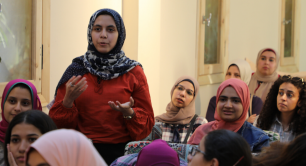Upcycling for change: transforming lives through entrepreneurship in South Africa
In a tough Cape Town township, residents are starting enterprises that make good use of discarded tyres, wood, plastic and glass. This could be a route out of poverty for many, not only in South Africa but beyond.

The Cape Flats in South Africa are a tough place to live. They are a low-lying sprawl of urban neighbourhoods south east of the business centre of Cape Town, in the shadow of Table Mountain. Virtually uninhabited until the 1950s, the area was once known for its sand dunes, wattles, a few isolated farms and roaming antelopes. But under the Group Areas Act of 1950, one of the models of the apartheid system, Cape Flats became a fast-growing township for people of mixed race who were segregated and expelled from other areas reserved for whites. In fact, the Act was designed to ensure that 80% of the people, who were non-white, were confined to 15% of the land in Cape Town.
Today the population is around 450,000. The history of over-crowding and poverty means that unemployment, drug addiction and crime are all significant problems. Urban services and amenities are minimal. Violent youth gangs operate in the area. In 2019, the authorities sent in army patrols to try and pacify the Flats, notorious for a high homicide rate.
“It is really a tale of two cities,” Albert Fritz, provincial minister for community safety, told newspaper The Guardian, noting, “you can be a tourist in the centre of Cape Town, and you will be totally safe. You will not know that 10km away there are people shooting at police.”
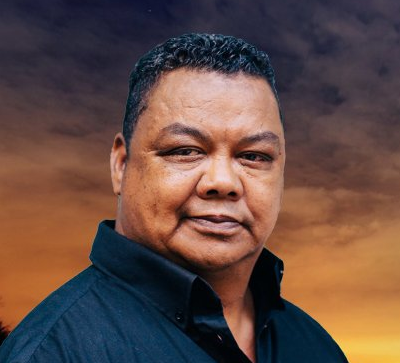 Paul Talliard (right) has personal knowledge of how difficult life in the Flats can be. He had worked as a local fireman, but his life took a downward plunge when he succumbed to drug addiction. He found himself relying on Soup Kitchens, a charity for homeless people. That was a turning point. Having reached such a low point, Paul began making the transition to taking responsibility for his own recovery. He became a volunteer working at Soup Kitchens. He was fascinated with the ethos of self-help that the organisation represents and is now an intensely passionate supporter of the work done by community-focused social and creative enterprises.
Paul Talliard (right) has personal knowledge of how difficult life in the Flats can be. He had worked as a local fireman, but his life took a downward plunge when he succumbed to drug addiction. He found himself relying on Soup Kitchens, a charity for homeless people. That was a turning point. Having reached such a low point, Paul began making the transition to taking responsibility for his own recovery. He became a volunteer working at Soup Kitchens. He was fascinated with the ethos of self-help that the organisation represents and is now an intensely passionate supporter of the work done by community-focused social and creative enterprises.
Believing that the Flats communities need to take their own initiatives to tackle violence and unemployment, he founded Hands of Honour, a social enterprise which works with rehabilitated drug addicts and homeless people to recycle or up-cycle waste and obsolete stock.
“Basically, companies and businesses act as our partners by donating unwanted goods and obsolete stock which we collect,” Paul says. “It is a job creation project. We focus on creating early learning tools for children and making furniture out of the stock that the companies donate. It is an upcycling programme. What we can’t fix, we transform.”
Hands of Honour now employs 14 people but can call in up to 50 more volunteers to cope with peaks in the recycling work. These men have come through the upcycling programme to re-join mainstream society as breadwinners and role models for young people.
It was at a reception to showcase various social enterprises that Paul first met members of UK-based Minca Ventures. Dr Andrés Morales explains that Minca integrates consultancy for social enterprises, impact evaluation and e-learning. It works with more than 400 social enterprises in 40 countries around the world. Andrés and Minca co-founder Dr Sara Calvo immediately felt there could be a very powerful connection between their academic and research work around issues like the circular economy with Paul’s practical and organisational knowledge. Together they applied, successfully, for support from the British Council’s DICE Fund. What emerged was an exciting multi-layered project.
Upcycling for Change
The “Upcycling for Change” project has three main elements. First is a workshop in Cape Town for 70 people designed to encourage vulnerable and unemployed community members to create upcycling-based social enterprises.
Second, the project has offered an accelerator programme for three selected emerging enterprises on their way to becoming sustainable businesses.
Third, using Minca’s educational and audio-visual skills, the project has developed a massive open online course (known as a Mooc) so that other communities around the world can learn how to develop and run their own upcycling enterprises. The Mooc is freely available in English and other key South African languages: Afrikaans, Xhosa and Zulu. Since it was launched in January 2020, the Mooc has had more than 1,300 learners from 180 countries. Minca has experience working with MOOCs having previously created one for social entrepreneurs with Middlesex University and other partners that has reached 50,000 people in 190 countries.
- FIND OUT MORE about the huge success of the Social Enterprise Mooc in our feature
There have been plenty of difficulties along the way. Cape Town gangs are territorial and wary of outsiders moving through their neighbourhoods. It was also difficult for some community members to travel, so a lot of effort had to go into finding a safe and neutral venue to hold the four-day workshop (in the event, this was achieved through a partnership with a local church). Then Paul’s premises suffered a burglary and his power tools – essential for doing some prototype re-purposing work during the workshop – were stolen.
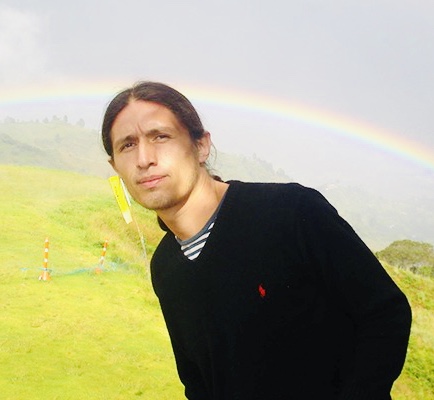 Despite this inauspicious start, the workshop was a great success. New tools were found. Andrés (right) says participants were chosen so as to mix local community members with experienced upcyclers from South Africa and beyond – including a social entrepreneur from Malaysia.
Despite this inauspicious start, the workshop was a great success. New tools were found. Andrés (right) says participants were chosen so as to mix local community members with experienced upcyclers from South Africa and beyond – including a social entrepreneur from Malaysia.
The groups experimented, working with wood, plastics, glass and tyres. By the end of the exercise, three potential social enterprises had emerged. One, called Pet Beds is based on the idea of recycling materials to create small beds for domestic pets such as cats and dogs. Another, Geezer Blankets, proposes selling insulation blankets made from recycled foil and cushion-like material designed to conserve energy and keep domestic hot water tanks warm. A third, Fire and Ice, involves recycling plastics to provide protective covers for office furniture and equipment.
“I am thrilled, thrilled that we’ve been able to bring this whole concept to this community,” says Paul. “It is the first time they have been able to hear about social enterprise. We could literally see, as the days went by, how their eyes lit up at the possibilities, because they come from such deprivation.”
Paul is also excited about what he calls a “stroke of genius” – the decision to invite local politicians to sit on the panel assessing proposals. He is confident that this will help them begin to understand the positive role social enterprise can play, and that they may replicate the project in other parts of Cape Town. Andrés is also very excited by the international possibilities. He has made contacts in four countries: Ethiopia, Ghana, Colombia and Spain, where local stakeholders and bigger organisations like the UN Development Programme and the European Union are potentially interested in similar upcycling incubation and acceleration.
The British Council and the DICE Collaborators (including the organisations featured in this article) invite you to join them in a series of conversations about reducing inequalities, collaborating across borders and oceans, and operating impact-focused enterprises at a time of profound change. These free, monthly live events are co-hosted by impact-focused organisations in Brazil, Egypt, Indonesia, Pakistan and South Africa and their partners in the UK, and draw on their experience of collaborating across borders to address challenges such as youth unemployment, environmental catastrophe, disability rights, and gender inequality in local communities. Find out more and register here.
The DICE Series tells the stories of collaborations which brought together enterprise development experts from the UK with specialists working in five emerging economies – Brazil, Egypt, Indonesia, Pakistan and South Africa – during 2019-20 with the aim of addressing entrenched issues of economic and social exclusion. Read more about the British Council’s DICE programme here.
Header photo: Hands of Honour volunteers clean up an illegal dumping spot to prepare an area for unemployed people to grow chilli and spinach. Photo courtesy Minca Ventures

